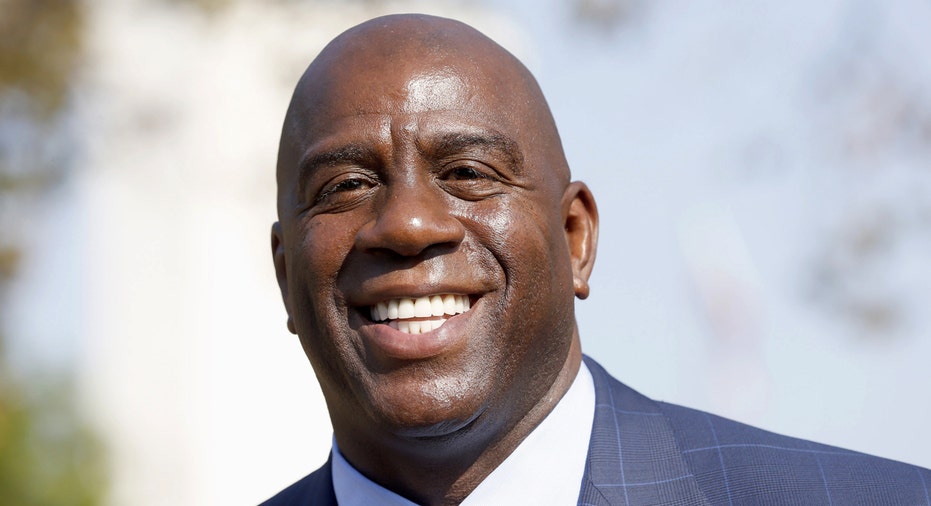For New Lakers Chief Magic Johnson, California Tax Rate Could be Obstacle

If the Los Angeles Lakers’ new chief Magic Johnson plans to use free agency to rebuild the once-great NBA franchise, he will have to contend with California’s sky-high state income tax rate.
Johnson, the Laker legend who was named the team’s new president of basketball operations on Tuesday, inherits a youthful team that stumbled to a 19-39 record to start the 2016-17 NBA season. The 57-year-old executive will have a significant amount of salary cap space to work with, putting the venerable Lakers in position to pursue a max contract-caliber star this offseason -- but there’s a catch.
California’s 13.3% tax rate for incomes above $1 million is the highest in the country. This puts NBA teams like the Lakers, the Los Angeles Clippers and the Golden State Warriors at a significant disadvantage when it comes to attracting cash-conscious basketball stars in free agency, despite the city’s natural allure and potential for off-court earnings through endorsement deals.
By comparison, the state tax rate in New York, home to the Knicks, is much lower at 8.82%. NBA teams in Florida and Texas – including perennial championship contender San Antonio Spurs and the aggressively-managed Dallas Mavericks – don’t have to contend with any income tax at all, making those locales prime destinations for top-flight talent.
“It can make a substantial difference,” said John Karaffa, president of ProSports CPA, an accounting firm that represents more than 500 professional athletes.
Under current projections for the 2017-18 season, players with 10 or more years of NBA experience, like Warriors star Kevin Durant and Cavaliers star LeBron James (who can become unrestricted free agents after this season), can sign maximum contracts worth $36 million per year. Players with between seven and nine years of experience can sign max deals worth $31 million per year.
According to Karaffa’s rough calculations, a player residing in California with a $36 million annual salary would pay a total of about $18.4 million in taxes, excluding deductions. Meanwhile, a player living in Texas or Florida, where there is no state income tax, would pay $16.6 million in taxes on the same $36 million deal, saving about $1.8 million.
Calculating tax rates for athletes can be complicated. Most states implement a “jock tax,” which requires athletes traveling for road games to apply that state’s income tax rate for every day they spend working in that state. Athletes can then apply for tax credits in their home states to ensure they aren’t taxed twice on the same income.
A 2011 study published in the Journal of Sports Economics found that teams playing in states with lower income tax rates tended to sign higher-performing free agents.
That doesn’t mean that every potential NBA free agent is lured by the promise of extra money. In pursuit of an elusive championship, Durant left the Oklahoma City Thunder to sign with the Warriors last offseason.
“We’ve done the calculations where the tax answer was compelling to go to X state as opposed to Y or Z, but the players still end up choosing the other state because of other issues like team chemistry, opportunity to win a championship, climate, the coach. There’s so many other factors,” Karaffa said.
After this season, Johnson and the Lakers will compete with other franchises for a crop of free agents that could potentially include James, Durant, Chicago Bulls guard Dwyane Wade, Utah Jazz forward Gordon Heyward, and several other high-caliber NBA stars.



















